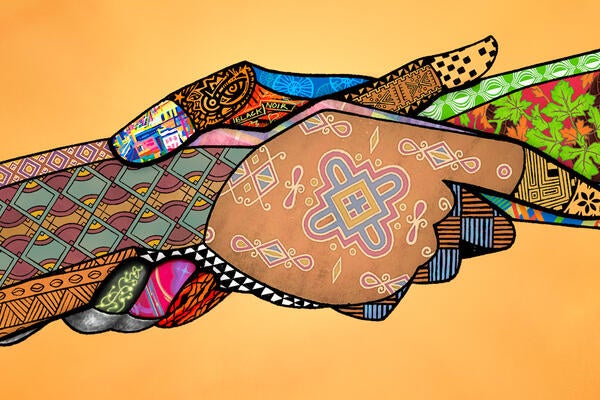
Winter Solstice: brighter days are ahead
An end-of-year message from the President and Vice-Chancellor

An end-of-year message from the President and Vice-Chancellor
By Vivek Goel President and Vice-ChancellorAs the days get shorter and we welcome the changing of the season, this time of the year is an opportunity to pause and reflect.
Reflecting on the past year, I am grateful for many things and many people—including every one of you in our community. Thank you for all your contributions through another challenging year. Your hard work and the diverse perspectives and knowledge each of you bring to our campuses every day make our community stronger.
Many of us are observing various holidays and customs this month and over the break. I enjoyed learning more about the significance of the Winter Solstice for certain Indigenous cultures. I would like to thank Savanah Seaton from the Waterloo Indigenous Student Centre (WISC) at United College for taking the time to share this knowledge with me.
The experience also reminded me of the importance of embracing and sharing traditional knowledge. Taking the time to slow down, connect to the land and spend time with loved ones is a timely message for us all.
However you spend the winter break, I hope you are able to connect with the people, places and traditions you hold dear, and that you take the time to rest and rejuvenate.
Wishing you a happy, safe and restful break. And we’ll see you again when the days get brighter.
Sincerely,

Vivek Goel
President and Vice-Chancellor

Read more
A message from the President and Vice-Chancellor

Read more
Defying convention to shape our global futures

Read more
As we prepare to celebrate Fall 2025 convocation this week, I would like to extend my heartfelt congratulations to our class of 2025.
The University of Waterloo acknowledges that much of our work takes place on the traditional territory of the Neutral, Anishinaabeg, and Haudenosaunee peoples. Our main campus is situated on the Haldimand Tract, the land granted to the Six Nations that includes six miles on each side of the Grand River. Our active work toward reconciliation takes place across our campuses through research, learning, teaching, and community building, and is co-ordinated within the Office of Indigenous Relations.